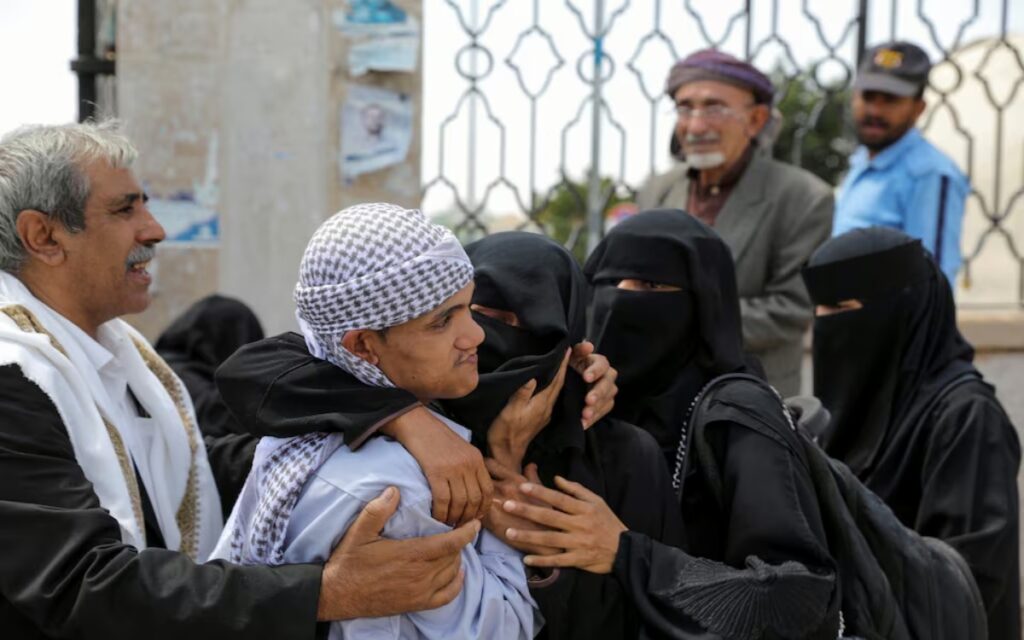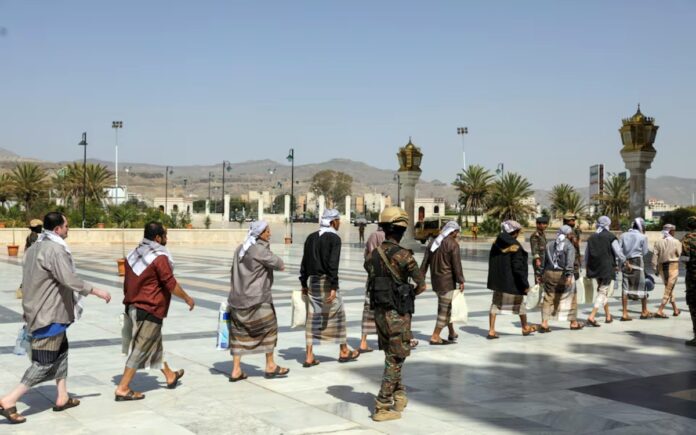Sanaa: Yemen’s Houthi group made a significant move on Sunday by freeing more than 100 detainees in Sanaa, labeling it a “unilateral humanitarian initiative” aimed at pardoning prisoners and reuniting them with their families.
Abdul Qader Al-Murtada, head of the Houthi-run prisoner affairs committee, announced the release, stating, “Most of them are humanitarian cases, including the sick, the wounded, and the elderly.” He clarified that the detainees had been government soldiers captured at the battlefront.

Also Read | Hamas Claims Launch of ‘Major Missile’ Strike on Tel Aviv
However, Yemen’s internationally recognized government contested this assertion, arguing that the detainees were not soldiers but civilians kidnapped by the Houthis from their homes, mosques, and workplaces. Majed Fadail, deputy minister for human rights in Yemen’s internationally recognized government, expressed this viewpoint in a social media post, stating, “Releasing these victims under any name does not absolve (the Houthis) of this crime.”
Confirming the unilateral release, the International Committee of the Red Cross (ICRC) stated on Sunday that 113 “conflict-related” detainees had been released. The ICRC emphasized its role in ensuring the humane and dignified release of the detainees.
Also Read | Ukraine Peace Summit: Zelensky Urges Biden and Xi’s Participation
One of the freed detainees, Murshed Al Jamaai, expressed profound relief, saying, “I feel completely at ease, as if I was born again today. Because we were desperate and thought we would never get out.”
Yemen has been embroiled in conflict since late 2014 when the Houthis ousted the government from the capital, Sanaa. In 2015, a Saudi Arabia-led military coalition intervened with the aim of restoring the government.
Also Read | Two Faces of Kashmir: Is POK Ready to Re-merge with India Once and for All?
While a proposed Yemen UN roadmap for peace was outlined last December, progress toward peace has been hindered by escalating Houthi attacks on ships in and around the Red Sea. The Houthis justify these attacks as acts of solidarity with Palestinians in the Gaza war.
This campaign has not only disrupted global commerce but also fueled fears of inflation and raised concerns about the potential destabilization of the Middle East region due to fallout from the Israel-Hamas conflict.



